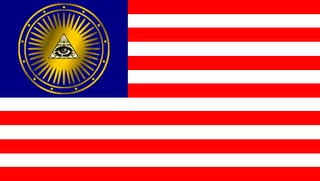The Republicans of Gilead

I was thinking about Margaret Atwood's A Handmaid's Tale, spurred by a reference in an article about the South Dakota abortion ban. In the novel, about life in a dystopic Fundamentalist America known as the Republic of Gilead, the entire narrative is framed by the epilogue. It is the excerpted speech of an academic at a conference in a distant future Greenland, discussing the main story's discovery in a buried footlocker in Canada.
I always had trouble with this pat, easy, happy ending to such a powerful piece of literature. Something always struck me as tone-wrong about it, maybe because it was a guilty pleasure to see history make Gilead suffer. Perhaps the ambiguity of justice in 1984's ending, (if we leave out of consideration Orwell's witty and prescient essays on language and the sinister applications of euphemism, included in 1984) where Winston has been totally broken by O'Brien and Room 101, was what Atwood was trying to avoid recreating.
I was glad to read most of these arguments in the Wikipedia article about A Handmaid's Tale, including an argument about a bit of androcentricity in the epilogue, as well as condemnation for its dehumanizing and detached nature. Still I love this novel because it paints a picture of a complex society without resorting to info dumps lke the encyclopedia/new bulletins accompanying the chapters in The Truth Machine or Dune.
A lot of science fiction also falls into the 'planet of hats' syndrome, where different societies so obviously meant to be analogous to some real cultural aspects, is different chiefly in one slight detail, but in an exclusive and all-encompassing way: planer Hthrae is just like planet Earth except everyone wears funny hats. Instead Atwood takes gender politics and dress codes and thus is able to transcend the just one issue, when that issue is how one half of the human race treats the other half.
Español | Deutsche | Français | Italiano | Português| Ch| Jp| Ko







0 Comments: